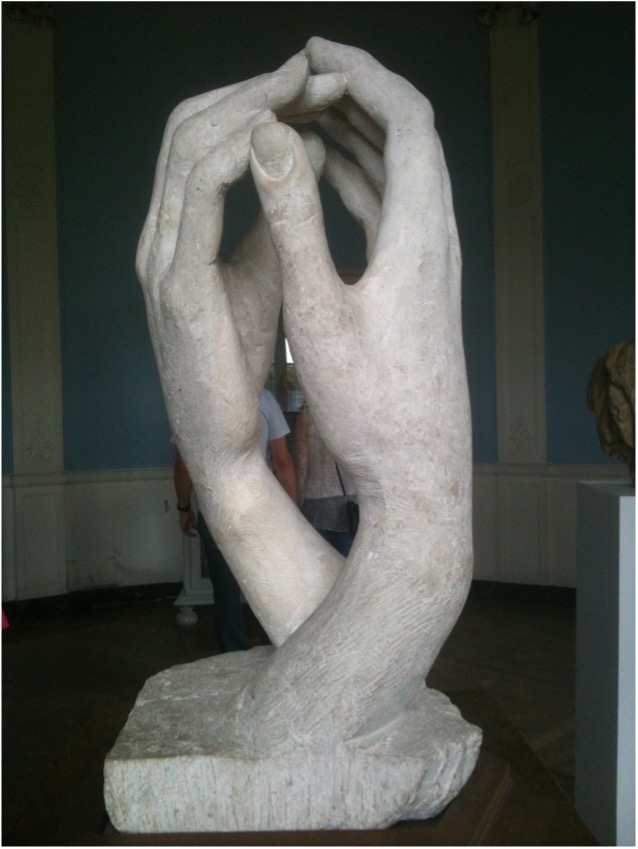Fall 2019 was an exciting time for me. I had recently had a baby, my oldest child was applying to colleges, and I had just submitted the final revisions to my first book. In January 2020, I was excited to get back to teaching, and I was feeling ready to embark on the new project on disability I had been wanting to do for so long. Then, things changed seemingly in an instant. We left the classrooms for spring break in March 2020 and didn’t return. Suddenly, I was at home juggling so many things: my spouse and I were trying to do work while caring for an infant, we were also caring for another child who was feeling the loss and sadness of having her senior year of high school disappear into Zoom and Google Docs, we were scared, and amidst all this, I was trying to take care of my own deteriorating mental health. Like many, I turned so much of my attention to care. It was during this time and in this mindset, that I decided to write the article, “An Alternative Revolution: Isabelle de Charrière’s Politics of Care,” forthcoming in Eighteenth-Century Fiction.

Almost serendipitously, as I began working on the article, I saw a call for contributions to a special issue of ECF called, “Refusing Eighteenth-Century Fictions.” I thought of one of the biggest fictions in eighteenth-century France – that the French Revolution of 1789 had established equality among citizens – and of how Charrière’s novel highlights the important ways in which French citizens were not, in fact, equal at all. Similarly, the COVID-19 crisis had laid bare many of the inequalities that shape our lives today. Although some were experiencing the precarity of life, livelihood, and bodily ability for the first time, it became undeniably clear how unevenly pay, labor, and access (to medical care, safe spaces, work) are spread throughout society depending on factors such as race, gender, and ability. I knew that my article had to address this parallel.
Unlike my other publications, I wrote this one almost entirely alone. I never presented the materials; I didn’t even really talk about it with others. Writing it felt not only like a way to work through some of the theoretical aspects of a new project, but it also felt like a way to immerse myself in a discourse of care at a time I desperately needed it. Sometimes, work can feel like a never-ending slog of tasks to tick off a to-do list but writing “An Alternative Revolution” at that moment felt like a supreme act of self-care.
 Tracy Rutler is the Sichi Early Career Professor and Associate Professor of Women’s, Gender, and Sexuality Studies and French and Francophone Studies at Penn State University. She is a scholar of early modern French and Francophone literature and philosophy, with a particular interest in the eighteenth century, and her research and teaching interests include queer studies, disability studies, psychoanalytic theory, political philosophy, and early materialist and vitalist theories. She is the author of Queering the Enlightenment: Kinship and Gender in Eighteenth-Century French Literature (Liverpool UP, 2021), and is the co-creator (with Valentina Denzel, MSU) of the Legacies of the Enlightenment project, which examines how Enlightenment ideologies continue to inform and haunt our current worldviews.
Tracy Rutler is the Sichi Early Career Professor and Associate Professor of Women’s, Gender, and Sexuality Studies and French and Francophone Studies at Penn State University. She is a scholar of early modern French and Francophone literature and philosophy, with a particular interest in the eighteenth century, and her research and teaching interests include queer studies, disability studies, psychoanalytic theory, political philosophy, and early materialist and vitalist theories. She is the author of Queering the Enlightenment: Kinship and Gender in Eighteenth-Century French Literature (Liverpool UP, 2021), and is the co-creator (with Valentina Denzel, MSU) of the Legacies of the Enlightenment project, which examines how Enlightenment ideologies continue to inform and haunt our current worldviews.
An Alternative Revolution: Isabelle de Charrière’s Politics of Care was published in Volume 36.1 of Eighteenth-Century Fiction. It will be Free to Read until March 5th.
Comments on this entry are closed.